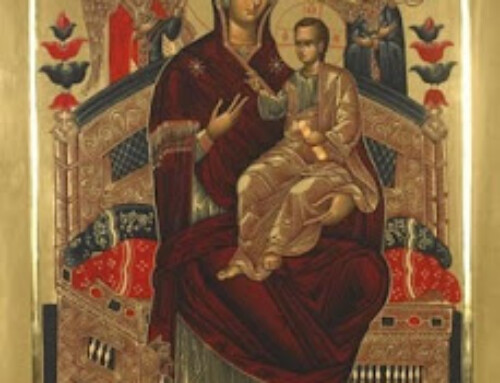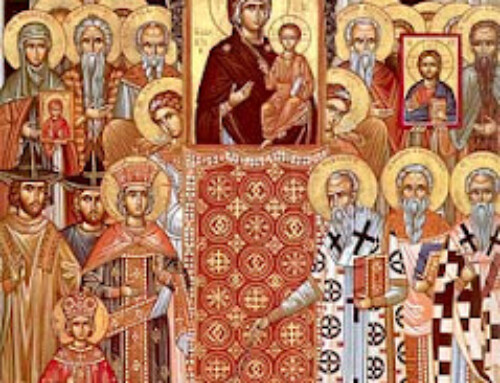Word Magazine April 1999 Page 20
CHRISTIAN EDUCATION IN THE NEW CENTURY: THE CHURCH SCHOOL
By Fr. Ted Bobosh
A highway shall be there, and a road, And it shall be called the Highway of Holiness …
Whoever walks the road, although a fool, Shall not go astray. (Isaiah 35:8)
Isaiah the Prophet foretold of the building of a highway which would lead the people to God (Isaiah 62:10). St. John the Baptist is recognized by Christians as the one who prepared the great desert highway for all to follow to God. The Christians called themselves The Way as Christ called himself — the way, the road to salvation (John 14:6; Acts 9:2). All who wanted eternal life could simply follow the road, the way of the Christians, the way of Christ Jesus, the way of the Cross, and that highway would lead to God’s everlasting Kingdom.
Today, the world also pursues a highway, which for the modern mind rivals any godly highway in magnitude and awe. The modern expressway is the information highway, which we are led to believe will open doorways and kingdoms to the masses, ultimately giving us the new world order of the kingdom of this world.
I mention the super information highway in dealing with the church school, to remind us Christians about the tremendous task which lies before us. We are the highway to God’s kingdom. When the only roads we had to compete with were the magnificent roads which led to Rome that city of God, the Christian Way offered a uniquely attractive alternative. Today, the information highway promises not only a way to Rome but to every other city as well. The competition for the Christian Way has gotten stiffer again. It would be wonderful to imagine that the “other” ways of life were ended with Constantine’s conversion, as some of our hymns suggest. However, the spiritual warfare never ended, the raging of the pagans continues, and in the consumer society the “other” ways are constant competition for the Way of Christ, the Way of the Cross.
The church school can be a tool of the Christian Church to be used in conjunction with our other tools, to help form the souls of our children and all disciples. By itself, the church school cannot form or nurture the Christian person. The church school is far too limited in its resources and time to achieve such great ends. What then is its role in doing Christian education in the 90’s?
I think it is right to say that the Christian family is the best forum for Christian education. The modern nuclear family of a very mobile society is much limited when we compare it with the extended family of nomads and agricultural societies. The modern, mobile nuclear family (for this article I’ll take this to mean parent-children families. We’ll leave aside all discussions of familial dysfunction and disintegration) lacks both the historical depth of multi-generational families and the support of broad extended family. This is all a complicated way of saying that the modern family can use help and support in its effort to be Christian in the world today.
The parish when functioning properly becomes the depth of a multi-generational group and the breadth of an extended family to every Christian family. In fact, it seems as if Christ Himself saw the Church as family in some ways as replacing the traditional blood ties of family.
“And a multitude was sitting around Him; and they said to him, ‘Look, Your mother and Your brothers are outside seeking You.’ But He answered them, saying, ‘Who is My mother, or My brothers?’ And He looked around in a circle at those who sat about him, and said, ‘There are My mother and My brothers! For whoever does the will of God is My brother and My sister and mother’ “(Mark 3:32-35; see also Matthew 10:35-38; 12:46-51; 19:29).
The Christian family of the 90’s should find a familial identification with other Christians who are also struggling with discipleship and the way of the cross in the modern world. The church school for these families becomes a forum in which the adult believers can help the students face, interpret and confront the world about them. The church school also serves as a means to “socialize” the children into the family of Christians, where they can understand the common fatherhood of God, where they can accept an identification as and with the children of God. In this way, the church school also becomes responsive to the needs and concerns of the modern family, instead of merely having the church school follow some predetermined curriculum answering questions which no one asks. Returning to the earlier imagery, Christianity as the Way, the truth, and the Light, the church school can become that way, illuminating for our children how they are to pass through life to attain the kingdom.




